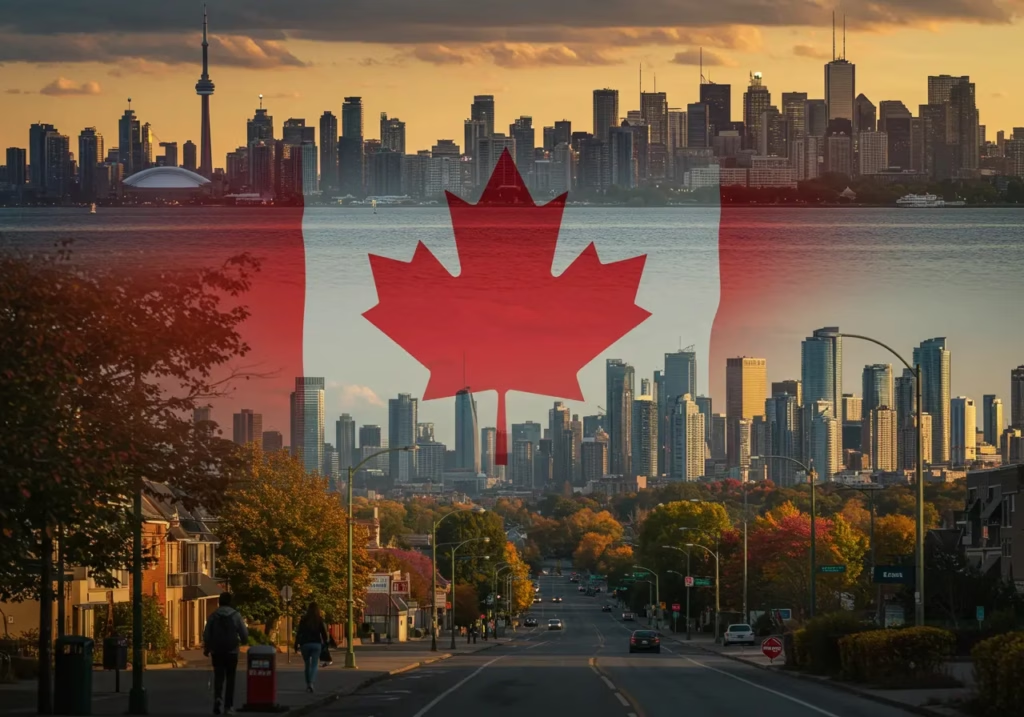Top Cities in Canada for Immigrants: A Detailed Cost of Living Comparison

Relocating to Canada is a dream for many newcomers around the world. The country is well-known for its quality of life, stability, and inclusive policies—but every immigrant faces a key question before moving: Where can I afford to live?
Understanding the living costs in Canada is essential before making your move. This guide explores eight of the top Canadian cities for immigrants, comparing rent prices, food, transportation, and general expenses. Whether you’re a skilled worker, student, or new family, this post will help you find the best city that matches both your goals and your budget.
1. What Does “Cost of Living” Mean?
The cost of living refers to the average amount of money it takes to cover basic needs in a specific location. In Canada, these needs typically include:
- Rent or housing payments
- Utilities (heat, electricity, water, internet)
- Groceries and household items
- Public transportation or car expenses
- Health insurance, if not yet covered
- Childcare or school costs (if applicable)
These expenses vary widely from one city to another, making it vital for newcomers to do their homework. Let’s dive into a city-by-city breakdown of how much it costs to live in Canada’s most popular immigrant destinations.
Find out if you are eligible to get in Canada →
2. Top Cities in Canada for Immigrants 2025
Canada offers a wide range of cities that attract newcomers, each with its own lifestyle, job opportunities, and living expenses. In this guide, we’ll compare the cost of living across the top Canadian cities to help immigrants choose the destination that best fits their goals.
Toronto, Ontario
Toronto is Canada’s largest city and a top choice for immigrants due to its booming job market and cultural diversity. However, it’s also one of the most expensive places to live.
A downtown one-bedroom apartment can cost as much as C$2,800/month, while groceries average around C$400 for one person. Utilities and internet combined can cost C$250/month, and a monthly public transportation pass (TTC) is C$156. Dining out, entertainment, and even coffee (C$5+ per cup) can add up quickly.
Tip: For more affordable options, look into neighborhoods like Scarborough, North York, or Etobicoke, which are further from downtown but well connected by transit.
Vancouver, British Columbia
Vancouver offers stunning mountain and ocean views, making it one of the most scenic cities in Canada. It also has a strong tech sector, a mild climate, and high demand for skilled workers.
However, Vancouver ranks as one of the most expensive cities in terms of living costs in Canada. Downtown rent for a one-bedroom apartment averages around C$2,400/month. Groceries can easily exceed C$600/month, and a public transit pass is C$120. Add in internet and heating (~C$180), and your monthly costs rise significantly.
Tip: Consider more affordable neighborhoods like Burnaby, New Westminster, or Surrey for significantly lower rent with excellent SkyTrain access.
Montreal, Quebec
Montreal is one of the most affordable major cities in Canada. It’s famous for its rich culture, active arts scene, and European-style charm. Unlike Vancouver or Toronto, rents are much lower—about C$1,300/month for a downtown one-bedroom.
Monthly grocery bills are typically C$350–400, a transit pass costs only C$94, and dining out is more budget-friendly. Quebec also has rent control policies and subsidized daycare, making Montreal a great choice for families and students.
Note: Basic knowledge of French is highly recommended, as many employers and landlords prefer French-speaking tenants.
Calgary, Alberta
Calgary is ideal for those in engineering, oil & gas, or skilled trades. It has lower rent than most major cities—roughly C$1,400/month downtown—and no provincial sales tax (a major savings on most purchases).
Groceries average C$400/month, and public transit (monthly pass) is C$112. Gasoline is also more affordable than in other provinces, and property taxes are generally lower.
Tip: The city gets cold winters, but lots of sunshine and access to the Rocky Mountains are huge pluses for outdoor lovers.
Find out if you are eligible to get in Canada →
Ottawa, Ontario
Ottawa is Canada’s capital and offers a good balance of career opportunity and family-friendly living. With strong public sector jobs, excellent healthcare, and bilingual education, it’s a strategic choice for long-term immigrants.
Rent is about C$1,400/month for a one-bedroom, utilities and internet are around C$200, and groceries average C$375. The OC Transpo monthly pass is about C$125.
Tip: Neighborhoods like Vanier and Orleans offer affordable housing, while still close to government and tech jobs.
Edmonton, Alberta
Edmonton is one of Canada’s most affordable major cities and a great choice for immigrants looking to save. It offers large apartments and family housing for significantly less—C$1,000/month on average for a one-bedroom downtown.
Transit is around C$100/month, and groceries are about C$350. Utilities run C$180, making Edmonton one of the cheapest cities for overall cost of living.
Tip: Edmonton has a growing healthcare and education sector, along with newcomer-friendly neighborhoods like Mill Woods.
Read Also: IRCC Clarifies PGWP Eligibility After Confusion Over Rule Changes
Halifax, Nova Scotia
Halifax is one of the best East Coast cities for immigrants, with a growing economy and strong sense of community. It’s particularly popular among international students and young families.
Downtown rent is approximately C$1,400/month, with utilities around C$200, and groceries costing around C$400/month. The city offers a monthly bus pass for just C$82, one of the lowest in the country.
Tip: Bedford and Dartmouth offer lower rents while still being within commuting distance of downtown.
Quebec City, Quebec
If saving money is your top priority, Quebec City is your best bet. It’s among the cheapest urban centers in Canada for rent, with a downtown one-bedroom available for just C$900/month.
Groceries are approximately C$300, public transit is C$91, and utilities are below C$150. The city offers a high quality of life with a distinctly French flair.
Quebec City Immigrant Services
Note: Almost everything operates in French—proficiency is essential for jobs and day-to-day living.
3. Cost Comparison Table
| City | Rent (1BR) | Transit | Groceries | Utilities | Total (Est.) |
|---|---|---|---|---|---|
| Toronto | C$2,800 | C$156 | C$400 | C$250 | C$3,600–3,800 |
| Vancouver | C$2,400 | C$120 | C$600 | C$180 | C$3,300–3,500 |
| Montreal | C$1,300 | C$94 | C$350 | C$150 | C$1,800–2,000 |
| Calgary | C$1,400 | C$112 | C$400 | C$200 | C$2,200–2,400 |
| Ottawa | C$1,400 | C$125 | C$375 | C$200 | C$2,200–2,500 |
| Edmonton | C$1,000 | C$100 | C$350 | C$180 | C$1,700–2,000 |
| Halifax | C$1,400 | C$82 | C$400 | C$200 | C$2,000–2,300 |
| Quebec City | C$900 | C$91 | C$300 | C$150 | C$1,500–1,800 |
4. What’s the Best City for You?
Choosing the best city depends on your goals and budget. If you’re focused on saving, cities like Quebec City and Edmonton offer the lowest living costs in Canada. For career growth or family life, Toronto, Ottawa, or Halifax may offer a better balance of affordability and opportunity. Here’s a quick look at which city may be the best fit depending on your situation:
| Goal | Best City |
|---|---|
| Affordable housing | Quebec City, Edmonton |
| High-paying jobs | Toronto, Calgary |
| Balanced cost & opportunity | Ottawa, Halifax |
| Strong French-speaking community | Montreal, Quebec City |
| Best for newcomers with families | Calgary, Ottawa, Halifax |
Final Thoughts
There is no “one best city” in Canada. The right place for you depends on your language skills, career goals, lifestyle, and budget. While cities like Toronto and Vancouver offer top-tier opportunities, they also come with higher costs. Cities like Quebec City, Edmonton, and Halifax are perfect for those seeking a balance of affordability and comfort.
By researching living costs in Canada, comparing cities, and exploring local newcomer support services, you’ll be better prepared to make a successful start in your new Canadian life.











